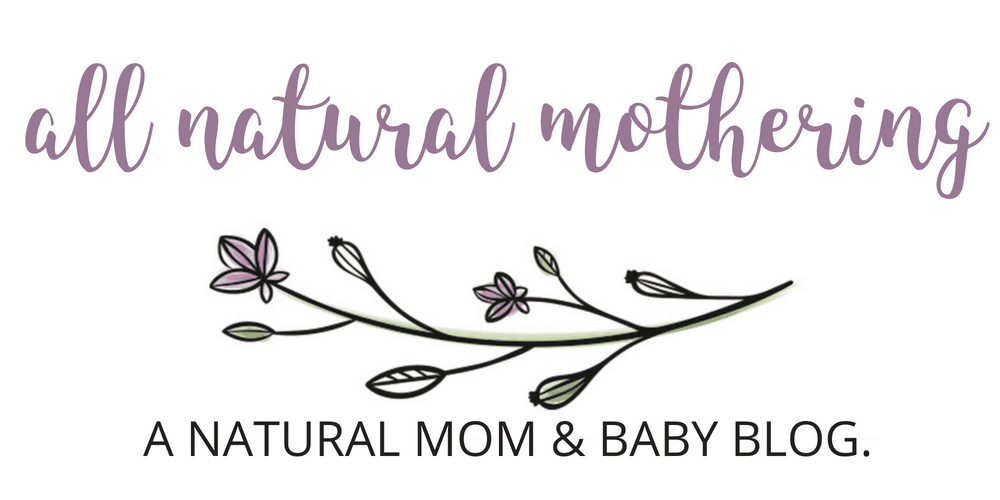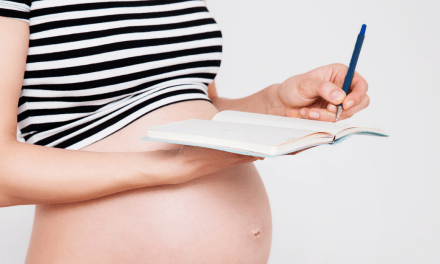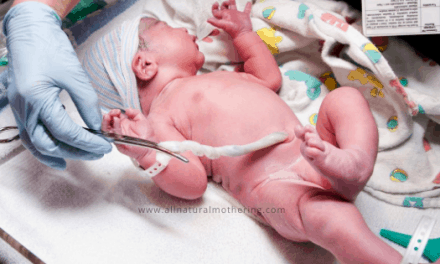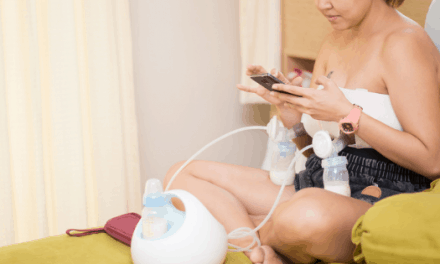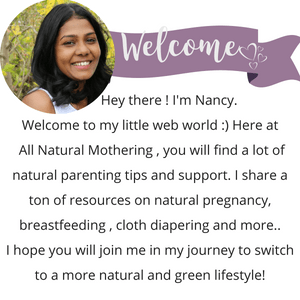Finding out you are pregnant is such an exciting time! The moment you get your positive pregnancy test, it can feel like there’s so much to do to have a healthy pregnancy and prepare for baby.
To get you started on the right track, I’ve put together the ultimate first trimester to do list. This way, you can rest assured you are doing everything possible to grow and nourish a healthy baby. We’ll also make sure you’re getting organized and taking care of logistics, too.
The nine months of pregnancy have a way of flying by, so let’s get this started!
1. Start taking a prenatal vitamin
The very first thing for every first trimester to do list is to start taking a prenatal vitamin right away. Prenatal vitamins are important for your baby’s development. They make up for any vitamins and nutrients that may be lacking in our diet and give a boost of some of the most important nutrients for your baby.
The most important nutrients for your baby’s development are:
- Folic acid: this essential to baby’s neurological development and helps prevent neural tube and other birth defects of the brain including anencephaly and spina bifida
- Omega-3s (DHA): more and more research is supporting the important role of omega-3s during pregnancy. These are literally the building blocks of baby’s brain! For this reason, it’s recommended to add a fish oil to your daily routine in addition to a prenatal vitamin
- Iron: having enough iron is essential for your body’s ability to increase your blood volume during pregnancy and develop your placenta
Look for an organic prenatal vitamin, like MyKind Organics, to reduce exposure to unwanted toxins.
2. Look into your insurance coverage
The next thing I tell every newly pregnant mama is to make sure you research and understand your insurance coverage! Finding out early in pregnancy what to expect for costs associated with your prenatal care and delivery is essential for planning and budgeting for baby.
If you and your partner are on different plans, take a look at their plan’s prenatal and birth coverage, too. A friend of mine was able to save thousands of dollars at her birth by switching to her husband’s plan during open enrollment. If she hadn’t researched it ahead of time, she might have missed the open enrollment period.
When looking at your coverage check for routine prenatal care coverage, costs associated with vaginal birth and cesarean birth. I also recommend looking at what your plan covers for lab testing and pregnancy complications just to be sure. If there is anything that’s unclear, don’t hesitate to call your insurance company for an explanation. Understanding your coverage is essential! Don’t skip this.
3. Schedule a prenatal appointment
Scheduling your first prenatal appointment is an exciting first trimester milestone! As soon as you get your positive pregnancy test, you’ll want to choose a provider and get this appointment scheduled.
If you haven’t already chosen a provider for your pregnancy, I definitely recommend doing a little research before just calling your regular OB. Here are some things to consider:
- Where do I want to deliver? Hospital, birthing center, home?
- Does my current women’s health care provider deliver babies at the place I want to deliver?
- Do I want to receive prenatal care from an OB/GYN or a Midwife?
Once you think about these questions, you can choose to schedule your first prenatal appointment at a practice that is affiliated with your preferred birth location. What’s more, choosing care from a midwife vs. an OB/GYN may impact the type of birth you have, too.
When you call to schedule your first appointment, be aware that they probably won’t want to see you right away. Usually, they will have you come in between weeks 8 and 10. But, if you have a history of miscarriages, or are especially anxious or concerned, they may have you come in at 5 or 6 weeks.
4. Book a first trimester scan
Often, the first ultrasound of pregnancy isn’t until week 12. However, if you are unsure of exactly when you got pregnant a dating scan can happen before then. When you call to schedule your first prenatal appointment, ask about first trimester scans and if a dating scan is possible.
It can be reassuring to have an early scan to help ease your fears and anxieties. It also helps everything feel so much more real!
5. Make sure your daily habits are pregnancy safe
When you are pregnant, your lifestyle doesn’t have to change too drastically. Pregnancy is a natural phenomenon after all. I’ll never forget my own midwife reminding me that pregnancy isn’t a time when you are sick or ill. Your body was made for this!
However, there are some daily habits that might have to change to keep baby safe. Let’s take a look:
Smoking
No amount of smoking is considered safe during pregnancy. It can lead to birth defects, preterm birth, stillbirth, and underweight babies. It’s so important to quit ASAP. If you need support, don’t hesitate to reach out to your provider or primary care physician (source)
Alcohol
No amount of alcohol is considered safe during pregnancy either. It can also lead to birth defects, developmental delays for baby, preterm birth, still birth and babies with low birth weight (source)
Caffeine
During pregnancy, it’s generally recommended to eliminate or cut back on caffeine as much as possible because it is a stimulant and may not be good for your developing baby––especially when consumed in excess.
I will note that current research supports that up to 300mg of caffeine per day is considered safe and does not pose any threats to your pregnancy (source). This is roughly 1-2 8 oz. cups of coffee per day. Another way to cut back on your caffeine intake is to switch to a few cups of black or green tea per day instead of coffee.
Exercise
Exercise is considered an important part of any healthy pregnancy. In fact, it’s recommended that women get 30 minutes of moderate exercise 3-5 days per week. However, you want to make sure you are doing pregnancy safe exercise.
Exercise that poses any risk of falling or injury to your abdomen should be avoided. Exercises with an excessive amount of jumping are also usually discouraged.
If you are already an avid exerciser, it’s usually considered safe to continue with your current routine. If you’re not, consider adding some movement to your day in the form of a brisk walk prenatal yoga. Here are some excellent, low-impact prenatal exercise ideas:
- Brisk walking
- Swimming
- Hiking
- Prenatal yoga
- Prenatal exercise classes
- Dancing
6. Medications
When you find out you’re pregnant, you’ll need to take an inventory of any medications you are taking. This should include supplements, herbs, over the counter and prescription medications. Discuss all of these with your provider to determine what’s safe during pregnancy and what’s not.
Next, you can discuss pros and cons for each during pregnancy. Generally speaking, the fewer medications (whether they’re pregnancy safe or not) the better. However, sometimes the risks associated with stopping a medication outweigh the benefits. Only you and your provider can determine what’s right for you.
7. Switch to nontoxic personal care and cleaning products
Now that you’re growing a baby, the care products you use, and potential exposure to toxins, don’t only affect you! Anything you use and ingest might also affect your growing baby’s development.
Take note of all the personal care products you use. Try to make switches to all-natural, organic, nontoxic alternatives whenever possible for you and baby’s safety.
- Deodorants: conventional deodorants contain a number of ingredients that might pose a threat to you and baby. In particular, phthalates, parabens, and triclosan are problematic because they can mess with our hormones. Switch to a pregnancy-safe, natural deodorant like Native
- Shampoo, lotion, and body washes: switching to nontoxic personal care products is important because any toxins or chemicals in your conventional items can leech into your body through your skin. Like deodorants, many conventional soaps, lotions and shampoos contain ingredients that are known hormone disruptors or carcinogenic. Some great nontoxic options are: Puracy brand of personal care products, Beauty Counter, and The Honest Company
- Laundry detergents: these are another common culprit for toxin exposure in our lives. Switching laundry detergents during pregnancy is a great idea to keep you and baby safe. I recommend Branch Basics as a trusted and safe brand. They consistently get good ratings from the EWG’s guide to healthy cleaning
8. Start eating healthy and avoid unsafe foods
While you’re pregnant it’s more important than ever to pay attention to what you’re putting into your body for fuel and nutrients. Investing in a great pregnancy nutrition book, like Real Food for Pregnancy, will give you a go to guide on all things pregnancy and diet. Here’s a quick breakdown to get you started:
Best foods for the first trimester
In all honesty, the first trimester ends up being the “eat anything that will stay down” trimester for a lot of mamas. Which is often all the carbs. And if that’s you–don’t sweat it!
However, some research has shown a link between probiotics and less pregnancy nausea, so adding in some foods, like yogurt, could help you.
If you can eat a balanced diet, focus on lean proteins, plenty of dairy to meet your requirements for calcium, and leafy greens that are rich in folic acid.
Foods to avoid during pregnancy
The biggest risks associated with food during pregnancy are food borne illness. Here’s what you need to avoid now that you’re pregnant:
- Unpasteurized milk
- Unpasteurized cheese
- Raw or undercooked meat
- Raw or undercooked fish
- Smoked seafood (such as lox)
- Fish that is high in mercury
- Raw or undercooked eggs
- Deli meat
- Unwashed fruits and vegetables
9. Learn the signs of early pregnancy problems
When you have your first prenatal appointment, be sure to ask about signs and red flags to look out for during the first trimester. Find out when they want you to call, and the best way to get in touch with them no matter the day or time.
Only your provider can give you specifics on the warning signs of early pregnancy, but here are a few general ones. Always call your provider if any of these are going on:
- Fever above 100.4
- Bleeding or bleeding with cramps
- Severe pain in the lower abdomen
- Signs or symptoms of a UTI
- Chills
- Severe headache
- Dizziness or fainting
- Cannot keep down food or liquids
- Excessive vomiting
- Persistent diarrhea
- Significant weight loss
(source)
10. Stock up on first trimester essentials
The first trimester is a bit of roller coaster when it comes to emotions and symptoms. For many, the first trimester can be the most uncomfortable! And you’ll be dealing with the first trimester symptoms all while trying to keep your pregnancy under wraps.
Check out my list of first trimester essentials to help you survive and enjoy these early weeks of pregnancy! Here’s a quick glance at what you’ll need:
- Prenatal vitamins
- Fish oils
- Acupressure bands
- Anti-nausea tea
- Ginger candies
- Pregnancy-safe essential oils
- Herbal tea for constipation
- All-natural hemorrhoid salve
- Maternity clothes (the Bellaband is a must!)
- Pregnancy journal
- Pregnancy photo props
11. Decide how to announce pregnancy
Announcing your pregnancy is one of the most fun and exciting milestones of pregnancy! Lots of mamas get creative with fun pregnancy announcements for their families, friends and loved ones. Don’t forget to plan an announcement for social media, too.
Deciding when to announce your pregnancy is just as important as how you’ll announce it. Many couples choose to wait to announce their pregnancy until the end of the first trimester because the risk of miscarriage drops of significantly at that point. Some even wait until their anatomy scan so that they can announce the gender at the same time.
Be careful not to announce your pregnancy on social media until you are absolutely sure you want everyone to know. For example, you may decide to wait to tell your workplace about your pregnancy a bit longer than say your family. My advice would be not to put it on social media until you’ve told everyone you want to in person first.
12. Order some pregnancy books
While the internet is full of excellent information to support you through your pregnancy and birth, there’s nothing quite like having a real book on hand to reference and enjoy during your pregnancy. Books that break it down by week and give you helpful information and tips along the way are great. I always loved reading my weekly chapter and flipping ahead to see what was to come.
Some of my favorite pregnancy books are:
- What to Expect When You’re Expecting: this is a classic pregnancy book that stands the test of time
- Mama Natural Week-by-Week Guide to Pregnancy: this book provides a natural take on all of your questions, concerns, planning and what to expect during each week of pregnancy
- Ina May’s Guide to Childbirth: this is a must read for every mama hoping to have a natural childbirth!
13. Start a pregnancy journal
Having a place to document your journey to motherhood is a must for every pregnant mama! Keeping a pregnancy journal is a wonderful way to reflect on the process, write letters to baby, and record memories and special milestones throughout your pregnancy.
You can use a blank journal and write what comes to mind, or you can opt for a pregnancy journal that includes weekly or daily journal prompts, questionnaires, and other fun worksheets to structure your pregnancy keepsake a bit.
14. Download a pregnancy app
Pregnancy apps are so much fun! They will give you great information specific to your week of pregnancy, tips and to-dos to keep you on track, and many will contact you with other pregnant mamas due in the same month as you. These forums were such a lifeline for me when I felt like no one else in my life understood what I was going through.
Some of my favorite pregnancy apps are:
- What to Expect Pregnancy and Baby Tracker
- The Bump
- Sprout
- Baby Center
15. Start taking bump pictures
This is such a fun way to document your pregnancy and see your progress! You will love looking back over the weeks and seeing the changes in your body and bump. It’s truly a miracle before your eyes. I always tell first time mamas not to skip this––and it’s never too late or too early to start!
16. Start planning for your baby financially
Adding a baby to your family is a big deal. There’s a lot to plan for when it comes to the birth, your home, and more. Planning for your baby financially is one of the most important things to plan for. I included it on your first trimester to do list for a reason––I don’t want you to skip this or wait until it’s too late!
Here are some steps you can take to start thinking about how your budget will change once baby arrives:
- Cost of childcare (yes, you really do need to start looking into this now!)
- Change in money coming in (due to maternity leave, or other changes)
- Cost associated with childbirth
- Monthly spending on diapers and wipes
- Seasonal spending on baby clothes, personal care products
- Cost of formula if applicable
- Cost of other baby needs such as pediatrician copays, eventual solid foods, any baby gear you need to get as your little one grows
Get your pregnancy started off right!
As you can see, there is a lot you can do in the first trimester to get your pregnancy off to a good start. This list has everything you need to stay organized, comfortable, and most importantly––nourish your sweet, growing baby.
